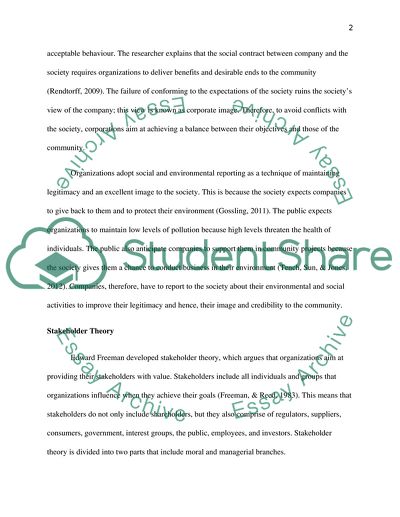Cite this document
(“Corporate Social Responsibility Theories Essay Example | Topics and Well Written Essays - 1500 words”, n.d.)
Corporate Social Responsibility Theories Essay Example | Topics and Well Written Essays - 1500 words. Retrieved from https://studentshare.org/finance-accounting/1666113-the-main-motivation-for-corporate-social-and-environmental-reporting-is-to-enhance-corporate-image-and-credibility-with-stakeholders-adams
Corporate Social Responsibility Theories Essay Example | Topics and Well Written Essays - 1500 words. Retrieved from https://studentshare.org/finance-accounting/1666113-the-main-motivation-for-corporate-social-and-environmental-reporting-is-to-enhance-corporate-image-and-credibility-with-stakeholders-adams
(Corporate Social Responsibility Theories Essay Example | Topics and Well Written Essays - 1500 Words)
Corporate Social Responsibility Theories Essay Example | Topics and Well Written Essays - 1500 Words. https://studentshare.org/finance-accounting/1666113-the-main-motivation-for-corporate-social-and-environmental-reporting-is-to-enhance-corporate-image-and-credibility-with-stakeholders-adams.
Corporate Social Responsibility Theories Essay Example | Topics and Well Written Essays - 1500 Words. https://studentshare.org/finance-accounting/1666113-the-main-motivation-for-corporate-social-and-environmental-reporting-is-to-enhance-corporate-image-and-credibility-with-stakeholders-adams.
“Corporate Social Responsibility Theories Essay Example | Topics and Well Written Essays - 1500 Words”, n.d. https://studentshare.org/finance-accounting/1666113-the-main-motivation-for-corporate-social-and-environmental-reporting-is-to-enhance-corporate-image-and-credibility-with-stakeholders-adams.


